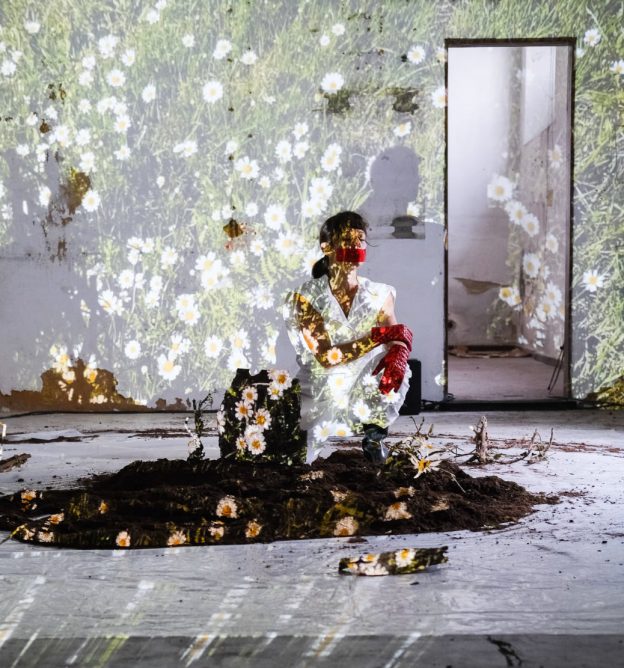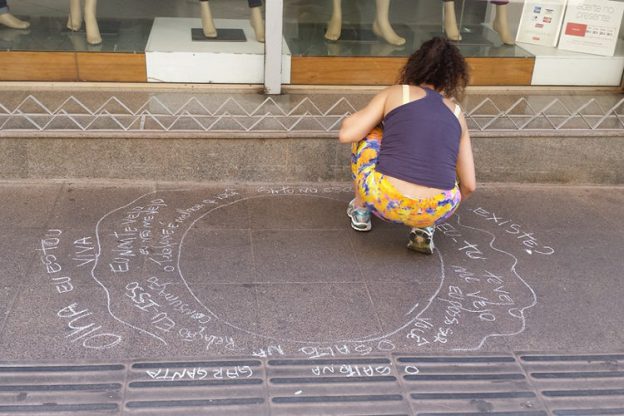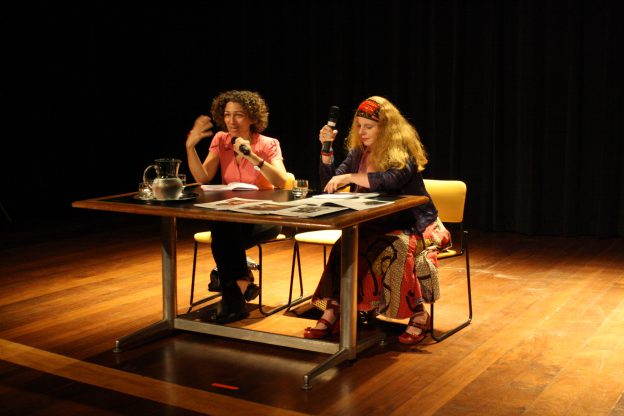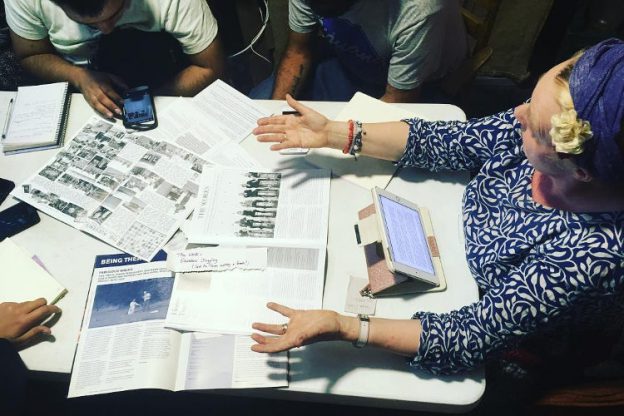Total Theatre Artists as Writers – developing new critical writing
Call-out to artists working in theatre/performance & outdoor arts/circus!
Total Theatre Artists as Writers is a free mentoring and training programme in writing skills, led by Total Theatre Magazine’s editors, working with guest mentors and workshop leaders
Applications open 16 September 9am| close 22 October 2021 at 6pm
Programme runs November 2021 to March 2022
Are you an artist/theatre maker keen to develop your writing skills? Are you interested in exploring writing about art and theatre making, past and present? Do you want to think more systematically about how we write about alternative theatre and performance practice?
Total Theatre Artists as Writers offers a four-month programme of free workshops and one-to-one mentoring sessions for contemporary theatre/performance artists interested in exploring writing about their own and other people’s alternative artistic practices.
Total Theatre Magazine champions artist-led critical writing, putting the practitioner at the heart of the discourse about their own work and the work of their peers. For the past thirty years the magazine, first in print and now online, has played a crucial role in promoting and championing alternative theatre practice in the UK, celebrating and supporting physical and visual theatre, circus, street arts, puppetry, performance & live art, queer arts, interactive work, and more. The TTM site can be viewed at www.totaltheatre.org.uk The archive is at totaltheatre.org.uk/archive
The mentorship will include workshops in writing skills on Zoom plus a one-to-one writing development plan to include mentoring sessions to support the artists involved, via whatever medium works best for each individual, plus editorial guidance and feedback delivered by email. The project will result in the writing of an extended essay/article, to be published by Total Theatre Magazine.
There will be three main strands that we will pursue throughout the programme:
Reflecting on and writing about the artist’s own journey and current practice
Research into the work of other artists, companies, organisations, or artforms/strands of practice (contemporary or historic) that the artist has a particular interest in – with reference to the Total Theatre Archive and/or other archives or resources
Reflection on the diversification of the theatre/performance/outdoor arts sectors, with sessions delivered by guest workshop leaders, and an encouragement to research and create articles written by or about artists of colour, LGBTQ+ artists, artists from working class & migrant communities, and on community responsive theatre- and art-making
Please note this is a voluntary participatory project, offering free training and mentoring. No prior writing experience is necessary, simply a committed interest in exploring your own practice.
Our partners in this project are: Out There Arts, Without Walls, London International Mime Festival, Polari LGBTQ+ Literary Salon, and Rose Bruford College of Theatre and Performance. We thank all of these organisations for their support. We also thank Arts Council England, and National Lottery players, who have made this project possible.
How to Apply:
Please send a short letter (300w-400w) telling us about your artistic background, where you’re based, and why you’d like to take part. Include an image of you and one of your work (or a weblink).
We would like to ensure that we mentor a true cross-section of artists of all identities and backgrounds in the project, so would appreciate knowing if you feel that you are a member of an under-represented group that needs more visibility.
We also have a few small bursaries for applicants who might need support (e.g. with carer or childcare costs). Please let us know if you would like to be considered for one of these bursaries.
Send applications to editor Dorothy Max Prior: max@totaltheatre.org.uk
NB Deadline has been extended to Friday 22 October 6pm
Successful applicants will be contacted by 26 October 2021.
Contact the Total Theatre Editorial Team for further information:
Dorothy Max Prior, editor max@totaltheatre.org.uk Tel/WhatsApp + 44 7752 142526
Beccy Smith, associate editor, reviews@totaltheatre.org.uk Tel/WhatsApp +44 7977 511556
www.totaltheatre.org.uk | @TotalTheatreMag | https://www.facebook.com/TotalTheatreMag
Featured image (top) is Yael Karavan, participant in the Total Theatre Artists as Writer 2020 programme.






